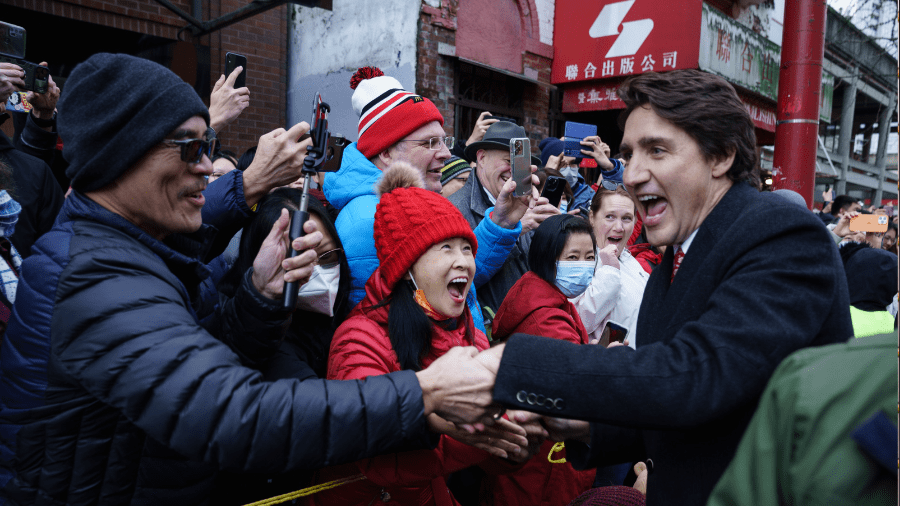This article originally appeared in the National Post.
By Shawn Whatley, February 13, 2023
After staring down the provinces for months, Prime Minister Justin Trudeau met with premiers last week to unveil the most oversold, underwhelming health-funding deal in Canadian history.
Federal-provincial negotiations about health funding are a battle over money and control. The provinces want more money; the feds want more control. The provinces want funding increases with little or no accountability; the federal government wants increased power, while paying a fraction of costs.
Victory in health politics goes to whoever captures the moral high ground. Whoever can champion patient care will control the outcome of negotiations. When the premiers met last July, they all agreed on their need for more money. Funding and economics overshadowed patient care. Thus, the provinces lost before the negotiations even began.
The provinces had time to pivot, but missed their cue. Health care, the economy and the environment always rank high as general concerns among Canadians. While health care usually falls to the bottom when it comes to voting intentions, that no longer appears to be the case: an Ipsos poll in September showed that affordability (40 per cent) and health care (35 per cent) had become the top two concerns influencing voting decisions.
Thus, the stage was set, with the high ground left unoccupied.
In November, Trudeau expounded the need for health-care results. In December, Health Minister Jean-Yves Duclos said, “The ball is in the premiers’ court.” If they want more funding, they must deliver results.
Then, in a year-end interview, Trudeau spoke what no prime minister has ever dared: he said there is “no point in putting more money into a broken system.”
Provinces asking for more money could not compete with the federal government asking for better health outcomes. The provinces were scuppered.
So, on Feb. 7, Trudeau unveiled his lacklustre deal: an increase of $196.1 billion over 10 years, including $46.2 billion in new funds. Canada spends around $331 billion a year on health care, so $200 billion over 10 years is a drop in the bucket.
The premiers (rightly) emphasize that the offer is not enough, thus holding firm to their defeat. Ontario Premier Doug Ford called the offer a “starting point.” Manitoba Premier Heather Stefanson said the premiers were “a little disappointed.”
It could be worse, though. The health outcomes defined in the offer are vague. For example, achieving a “modernized health system” seems hard to define and easy to deliver. Any change could count as modernization and qualify for funding. At least 20 similar comments could count as “shared health priorities to deliver real results.”
Ambiguity helps the federal government, too. Most organizations struggle to deliver two or three strategic goals. Anyone promoting 20 goals needs them to be vague enough to deflect accountability. In this sense, the offer might be exactly what governments at all levels need right now, but it is not what Canadians want.
An Ipsos poll released last week found that 86 per cent of Canadians supported an increase in federal health transfers. The study also found that 59 per cent support the private delivery of publicly funded care and 60 per cent support fully private care for those who can afford to pay for it.
The current deal avoids these debates by design. It has nine different dollar figures (all but one in the billions), several dozen fuzzy targets and no mention about how anything will get done.
Perhaps federal-provincial funding talks are not the place for substantive debates about how the system is designed. Maybe all the federal messaging about results was just negotiating in public. Nevertheless, there are much-needed debates to be had.
Governments could have tackled governance — i.e., who citizens should hold accountable for health care. They could have discussed innovation within the Canada Health Act and how much leeway the provinces have given the federal government’s call to modernize care.
In the end, Justin Trudeau’s offer looks like Prime Minister Paul Martin’s 2004 health accord. Martin’s infamous $41-billion “fix for a generation” introduced the strings-attached approach. The accord did shorten wait lists in five areas, including cataracts and MRIs. But it failed to create substantive change. Most funding went to pay increases for doctors and nurses. Until last week, Martin’s accord was something to avoid, not recreate.
The provinces lost this round. In hindsight, they should have seen that the hype was oversold. But it could be much worse. Given new money and vague accountabilities, provinces should take the money and run.
Shawn Whatley is a practising physician, senior fellow at the Macdonald-Laurier Institute and author of When Politics Comes Before Patients: Why and How Canadian Medicare is Failing.






